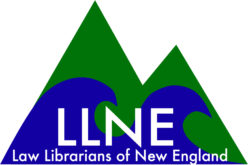Many websites offer free and useful legal information to the public. Federal government websites, including the following, are generally trusted sources of such information:
- Congress.gov (http://www.congress.gov), the official website for U.S. federal legislative information, provides full text of public laws, pending bills, committee reports, congressional hearings, treaty documents, and more. Full text of legislation is available from 1993 (103rd Congress) to present, with bill summary and status dating back to 1973.
- For current and historical editions of the United States Code, go to the Office of the Law Revision Counsel (http://uscode.house.gov/) — an independent, nonpartisan office in the U.S. House of Representatives charged with the responsibility of compiling and publishing the U.S. Code.
- At GovInfo.gov (https://www.govinfo.gov/), a division of the U.S. Government Printing Office, you can access publications from all three branches of the federal government, including the Code of Federal Regulations, Federal Register, Congressional Record, U.S. Code, court opinions, etc. Most of its publications date back from the mid-1990s.
- Court websites (http://www.uscourts.gov/node/12916) are good starting places if you want to locate recent federal court opinions. This site provides links to all the federal court websites. Many court websites will make a selection of their recent opinions freely available for the public.
Finally, here are some non-government websites that offer quality legal information for free:
- Cornell Legal Information Institute (http://www.law.cornell.edu), a non-profit group that publishes an extensive collection of legal materials online and for free, posts U.S. Supreme Court opinions, federal court rules, the U.S. Code, the Code of Federal Regulations, state statutes by topic, etc. It also publishes Wex Legal Encyclopedia which is an excellent place for the public to start basic legal research on a topic.
- Public Library of Law (http://www.plol.org) collocates free primary law sources scattered across the Internet. You can search for all types of primary sources in U.S. law, including cases, statutes, regulations, court rules, and constitutions.
- Google Scholar (http://scholar.google.com) offers free searching for, and full text of both federal and state case law. You might also search for open access secondary sources like law journal articles.
- FindLaw (http://www.findlaw.com), owned by Thomson Reuters, provides free legal materials from court opinions, legal forms, to news and blogs. You will also find lawyer directories by practice area and location.
- Justia (http://www.justia.com) has a “Legal Research & Practice” library that provides free access to cases, statutes and other legal materials organized by jurisdiction and subject area. It also offers information to people who are interested in obtaining lawyers, legal aid & pro bono services.
